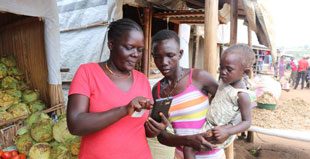
COMMENT: Colin Asiimwe
Using shame to understand and combat financial inclusion communication challenges for clients
A few months ago, a client came to us at Metropolitan Republic Uganda with a problem. To solve it we had to understand the mindset and attitudes behind many peoples’ aversion to banks and formal financial structures. What we ended up discovering was that the formal financial system while fraught with infrastructural challenges (low numbers of branches and ATMS and low literacy) also faced a much bigger challenge; there was a perception challenge.
In marketing understanding your target market is everything. Game changing products, brand new CEOs and boards, massive budget investments deliver only a fraction of the pie because knowing what the customer’s needs are ensures their interests are protected.
In no sphere of life does this hold more weight than in finances. It matters because of that powerful harrowing expression “How will they see me?” (sic)
This unique insight takes on an unearthly enormity when applied to the process of actually accessing money. Borrowing money in Uganda is a herculean task. Why? Because you require a plethora of documents which cannot be gotten easily or discreetly. So by the time you get the loan, everyone knows you’re borrowing money. This is either because they have seen you looking miserable in the bank lounge or have seen the bank loan officer at your office getting signatures and assurances. Not only do you have to forfeit some form of collateral but it is often worth several times more than the sum borrowed. Forgiving the cruel interest rate will not wipe away the ferocity with which this money is itself collected.
Shame is the vulture circling above us, waiting to devour our esteem and eat our respect. In many Ugandan cultures, actions taken to avoid or direct away shame are probably more in number and in cost than those taken to maintain human dignity and respect.
How one projects oneself is critical to how they are seen. What car they drive, where they live, which shoes or handbags they buy, which bars they drink at. It all matters. So people borrow, live outside their means, lie, prostitute, cheat, steal to fulfill this “how will they see me?” desire.
Although in many cultures fathers know that no amount of bride price will measure up to their daughter’s worth, they maintain the age-old practice so they will not be laughed at by peers. However, quite confusingly this same terror or fear is similar to what is commonly observed in villages/ communities where a man might have reproduction problems or one where his foolishness or greed has led him to have no planting seed for the season’s rains.
The need for societal validation is high and is a decision driver; from which schools your children go to, to which venues weddings are held, to what kind of roof to put on the house, to what course your children study at university and even which tribe they marry from. It matters because of “How will they see me?”
If you are informally employed, you know what it is like getting money from a money lender – because the banks are not an option. It is not uncommon for MPs to hide in parliament to avoid these people. They are brutal, expedient and have little compunction.
But there are those among us who advocate for community savings and cooperative credit schemes (Saccos). Across the country however we learnt that there had consistently emerged two issues; a) the Sacco leadership disappears with funds and b) the failure of Sacco leaders to enforce bylaws by confiscation and / or imprisonment of defaulters because as is most often the case, they are relatives, family or at the very least have close family ties.
In each of these scenarios, should something happen as the capricious nature of business and life are wont to be, the shame quotient is too high. The embarrassment cannot be suffered because people want to be seen at their best. They want to be seen in control.
Going back to our client’s problem, you can now see how deep we had to dig to understand the layers and nuanced inflections of this complex social substructure.
How could we tell people about a loan service and money that they could borrow discreetly, securely, instantly without the aforementioned embarrassment? We needed to find a behaviour change driver and we found it in that fundamental question; “How will people see me?”. If it was a symbol of shame and emasculation, it could be turned into an insight for powerful behaviour change.
“How will they see me borrowing money?” “How will they see my children out of school?” “How will they see me not having transport to go home?” “How will they see me by the roadside with my car stuck?” These questions were all critical to understanding what was stake but also in them lay the opportunity for our client.
It emerged that the more we applied the question, the more audiences responded positively to a service that would provide quick, easy, predictable financial help. A loan that would allow them room to maneuver; to pay in installments they could afford, thereby leaving them more cash in their pockets. More cash to do more of the things they needed to do. A savings product on the go, with no minimum balance, no pesky deposit queues, a service available 24 hours a day; more cash to deliver more convenience in a closely held, personal device that allowed only them to know what they were borrowing or saving. That is how they wanted to be seen. They wanted to be seen handling their matters.
To tie it all up, knowing the customer’s needs are ensures they are protected from the shame associated with the current banking practices. In the 21st century building financial inclusion has become about building dignity.
****
Colin Asiimwe is a strategist at Metropolitan Republic Uganda.
****
editor@independent.co.ug
 The Independent Uganda: You get the Truth we Pay the Price
The Independent Uganda: You get the Truth we Pay the Price




More cash. Interesting.